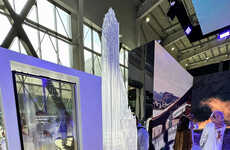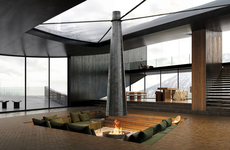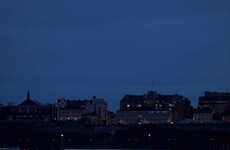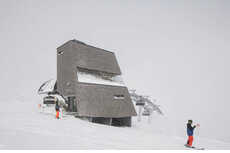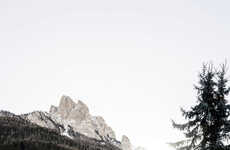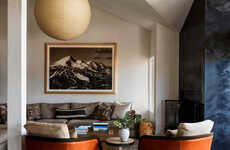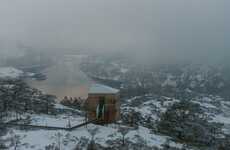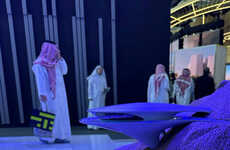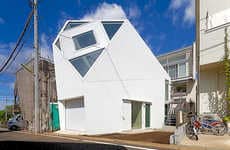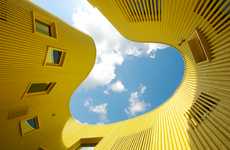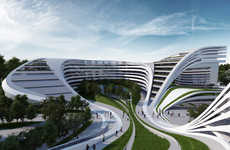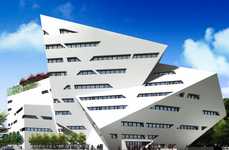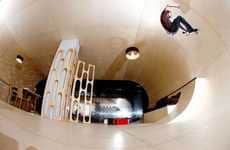
Holmenkollen Ski Jump Will Brighten The Night Sky
Nika Kubiak — May 1, 2009 — Art & Design
References: holmenkollen & designbuild-network
The Holmenkollen Ski Jump is being constructed just in time for the World Championships in 2011. Julien De Smedt from JDS Architects in Copenhagen, Denmark, are redesigning the Holmenkollen ski jump, one of the most visited tourist attractions in Norway.
The old hill which was established for the Nordic ski competition in 1892 and has been rebuilt 18 times since. The new Holmenkollen Ski Jump for the 2011 World Championships resembles twisted ribbons full of lights.
Project leader Kamilla Heskje says, "We felt the stream of light would emphasise this and also be a symbol illustrating the subtitle of the project – extending tradition."
The Holmenkollen Ski Jump is constructed to protect jumpers from the wind and to give viewers the opportunity to enjoy the competition from a viewing deck. There will be also a lounge area for spectators and officials with an elevator taking everyone to the top.
Light projected from the sloping tops of the Holmenkollen Ski Jump will give the impression the slop is continuous with the sky.
The old hill which was established for the Nordic ski competition in 1892 and has been rebuilt 18 times since. The new Holmenkollen Ski Jump for the 2011 World Championships resembles twisted ribbons full of lights.
Project leader Kamilla Heskje says, "We felt the stream of light would emphasise this and also be a symbol illustrating the subtitle of the project – extending tradition."
The Holmenkollen Ski Jump is constructed to protect jumpers from the wind and to give viewers the opportunity to enjoy the competition from a viewing deck. There will be also a lounge area for spectators and officials with an elevator taking everyone to the top.
Light projected from the sloping tops of the Holmenkollen Ski Jump will give the impression the slop is continuous with the sky.
Trend Themes
1. Illuminated Architecture - Incorporating dynamic lighting designs into architectural structures creates visually striking landmarks and enhances the overall experience for visitors.
2. Sustainable Tourism - Integrating sustainable and eco-friendly design principles into tourist attractions offers a unique selling point and appeals to environmentally conscious travelers.
3. Interactive Spectator Experiences - Providing interactive elements and elevated viewing decks at sports venues enhances the spectator experience and fosters a stronger connection between the audience and the event.
Industry Implications
1. Architecture - Architects can leverage dynamic lighting techniques to create iconic structures and differentiate their designs in the competitive industry.
2. Tourism - The tourism industry can capitalize on sustainable design practices to attract environmentally conscious travelers who prioritize eco-friendly experiences.
3. Sports and Events - Sports and event organizers can integrate interactive elements into the spectator experience to increase audience engagement and create memorable moments.
2.4
Score
Popularity
Activity
Freshness

